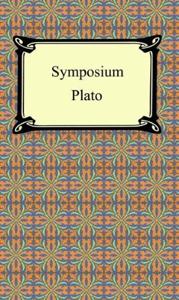
Want to learn the ideas in The Symposium better than ever? Read the world’s #1 book summary of The Symposium by Plato, Christopher Gill here.
Read a brief 1-Page Summary or watch video summaries curated by our expert team. Note: this book guide is not affiliated with or endorsed by the publisher or author, and we always encourage you to purchase and read the full book.
Video Summaries of The Symposium
We’ve scoured the Internet for the very best videos on The Symposium, from high-quality videos summaries to interviews or commentary by Plato, Christopher Gill.
1-Page Summary of The Symposium
Overall Summary
172a-173e
Apollodorus is in the middle of a conversation with an unnamed companion. His companion asks him about a dinner party where Socrates and others made speeches about love. Apollodorus explains that he’s well prepared to answer his companion’s question because Glaucon asked him the same thing while walking to Athens.
Apollodorus was eager to give an exact account of what happened at the party, but he knew that Socrates’s friend was the best person to report what Socrates said. He pointed out that it would be difficult because it took place a long time ago and he has only been his disciple for three years. Before then, Apollodorus used to run around aimlessly with no interest in philosophy; though he thought he was doing something important, he was actually in a pathetic state.
Apollodorus is telling this story to Glaucon, who had been asking him about the dinner party. Apollodorus says that he heard it from Aristodemus, a man who was in love with Socrates at the time. Aristodemus told Apollodorus as they walked back from Delphi to Athens. He will now tell his companion the same story on their walk home.
174a-177e
Now we shift to Aristodemus’ point of view. He sees that Socrates has bathed and put on sandals, which he hardly ever does. He asks where Socrates is going, and he explains that he’s going to Agathon’s dinner party. Aristodemus agrees to go along even though he wasn’t invited.
Aristodemus and Socrates continue walking to Agathon’s house. However, Socrates keeps lagging behind. Aristodemus is told that he needs to go ahead without him so that he can arrive at the party first and not be rude by showing up uninvited. Agathon is glad when Aristodemus arrives and explains that he tried to invite him but couldn’t find him the day before. A servant reports seeing Socrates standing in a neighbor’s porch, refusing to come inside of it even though there are people waiting for him inside of it since they want his company. Aristodemus says this is typical behavior for Socrates because whenever he wants someone nearby, he just stands still wherever he happens to be at the time rather than going over there himself or asking others for help in getting there quicker if needed.
Socrates eventually joins the dinner party. After eating, they perform their customary rituals such as pouring libations and singing hymns. They then discuss how they will approach that night’s drinking. Pausanias says he is still recovering from yesterday’s drinking and hopes to find an easy way of getting drunk again without having a hangover tomorrow morning. The other guests agree with him, but Eryximachus points out that since Socrates doesn’t have to account for himself, it’ll be fine no matter what they do tonight because Socrates can drink or not drink depending on his mood at the time.
They agree that everyone should drink as much as they want. Eryximachus suggests sending away the flute-girl so that they can have a discussion about eulogies. He proposes that each of them give a speech about love, since nobody has ever done one before. They all agree to this proposal.
178a-180b
Phaedrus begins by stating that Love is honored for his great age. Because of his old age, he’s the source of humanity’s greatest benefits. It’s important to have a good lover in your life because it will help you live well and be happy. A good lover will also teach you what’s right and wrong, which is critical for living a good life.
Phaedrus claims that a man would be more ashamed to disgrace himself in front of his lover or boyfriend than any other person. This is because lovers are so obsessed with competing for honor, they can defeat the whole human race. Achilles was willing to die for Patroclus out of love, and he did this in The Iliad.






